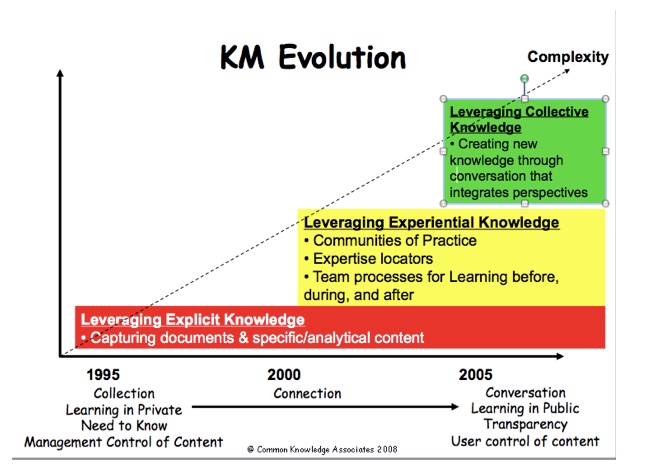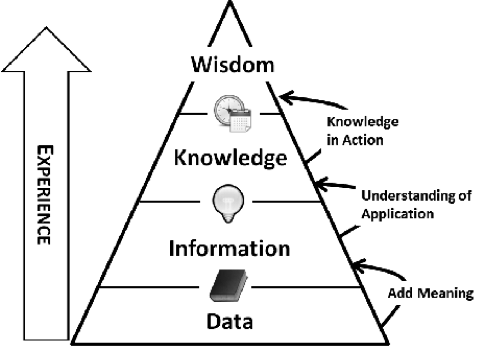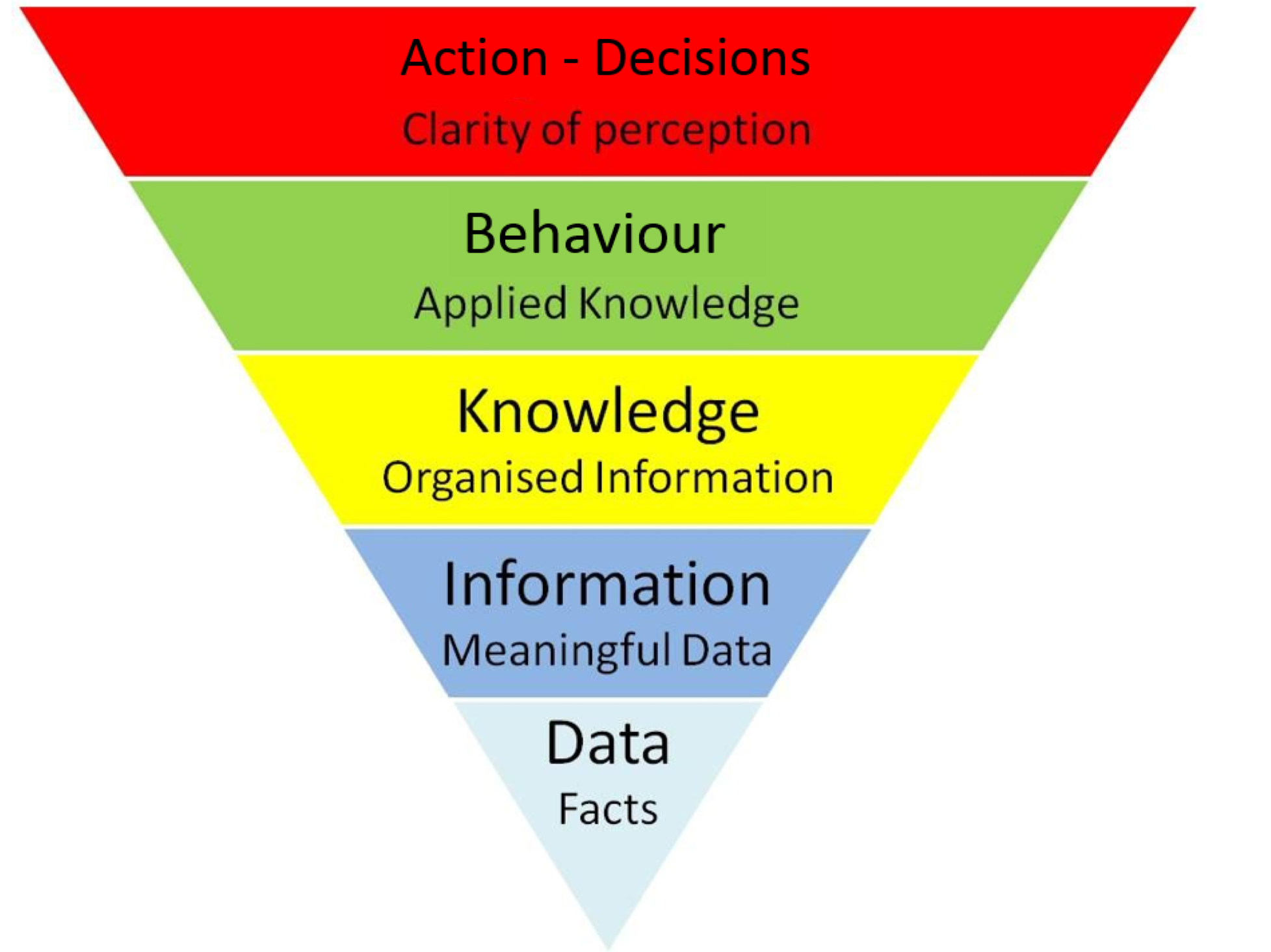Knowledge Ecosystems and the Pivotal Role of the Special Librarian

Stephen Abram
Nancy Dixon has written a great post about what special librarians can do in strategic support of their users, titled Three Eras of Knowledge Management. It fits nicely with my own position that it’s not possible to actually manage knowledge. I may be being a bit heretical here—but I believe we need to understand this deeply to know the difference between data professionals, information professionals, and knowledge workers.
The Three Eras of Knowledge Management – Summary

Nancy’s blog is very intelligent, and worth adding to your feeds when you have an interest in KM.
By now, if you’ve been reading my posts, you know I like to start with definitions:
knowledge
näləj/
noun
- facts, information, and skills acquired by a person through experience or education;
the theoretical or practical understanding of a subject.
“a thirst for knowledge”
synonyms: understanding, comprehension, grasp, command, mastery;. . . - awareness or familiarity gained by experience of a fact or situation.
“the program had been developed without his knowledge” synonyms: awareness, consciousness, realization, cognition, apprehension, perception, appreciation;
formal cognizance
Note that the above definition clearly shows that knowledge can only exist inside a human mind—I like to call this wetware. It CANNOT exist anywhere else! Not software, not databases, not books—nowhere else but in humans.
Our resources are mere data and information. Until our resources interact with the human experience of reading, learning, conversing, and more, they remain what they are—dead weight—paper, photocopies, and bit and bytes.
This is not to say that librarians and information professionals are not vital to the knowledge sphere. In fact, it’s the polar opposite. We influence—through our professional skills, services, products, and insights—knowledge ecologies or knowledge ecosystems. Indeed, we manage the points between data, information, knowledge and behaviour.
Consider the oft-used pyramid below:

This is wrong on a number of fronts. Primarily it’s wrong because it implies that true wisdom is achievable by merely following this hierarchical process. I don’t know what you think, but in my opinion, if this were true we’d be able to point to millions of people who are ‘wise’. Indeed, elections, hiring, and more would be quite a bit easier. The truth is it’s very difficult to climb this pyramid—and special librarians play an important role in that.
Now, consider replacing wisdom with “behaviour”. That feels closer to the mark for me.

My insight is that our value lies between the segments. Our magic is in transformation of data into information, and information into knowledge—and then aligning everything with our clients’ abilities to apply their knowledge.
What can we learn from this? We can apply our professional information skills by:
- Simplifying access to QUALITY information. This involves professional choices that limit exploration to just quality, authoritative, and sustainable content.
- Aligning CONTENT with the Learning Styles of our clients. If needed we are not limited by text formats and cover the full swath of audio, video, and visual resources.
- Improving the SPEED to access by ensuring that search is contextual and we integrate—when appropriate—internal and external information, as well as connecting people to people and people to information. We must demonstrate that our destination is superior to Google and its kind.
- Build our services into our clients’ WORKFLOWS. When data is raw it is not decision-ready Can we output to the needed tools (like Excel, SPSS, SAS, etc.) seamlessly or can we make the data visual so that clients can make that leap in cognition.
- Focus on UNDERSTANDING and COGNITION. Let’s design around how the client will ultimately use the information and the path to achieve this. We need to remove as many barriers as possible without removing the clients’ control of the steering wheel. We need to only focus on UX—user experience design—and avoid the desktop or mobile design trap. Desktops aren’t clients, despite IT framing them as such!
- Focus on the real CONTEXT. What are the primary behaviours of your organization? Ensure that you align with behaviours and avoid aligning with information structures. If the primary behaviours are decision-making, curating museum experiences, building legal memoranda, inventing or innovating, or whatever—make sure that it’s clear in your promotion, stories and design that you are key to that process.
- Build human capacity around knowledge acquisition through TRAINING and SUPPORT. We’ll never be done with the information and workplace literacy portfolio. Too much is changing too fast to let up. That said, there’s a key role for us in promoting these skills and competencies as critical to the long term success of individuals and teams in the workplace.
Those are just a few ideas, but I believe that when we acknowledge our key role in making our human colleagues more competent and making better decisions, and we focus on this, we are not just a support or service operation, we’re integral. And that’s being the top tier living thing in the knowledge ecosystems of our organizations.
Discussion Idea: Is your organization in one of the three eras outlined in Nancy Dixon’s article? Maybe you’re already inventing Era number four!

Stephen Abram
Stephen Abram is a popular Lucidea Webinars presenter and consultant. He is the past president of SLA, and the Canadian and Ontario Library Associations. He is the CEO of Lighthouse Consulting and the executive director of the Federation of Ontario Public Libraries. Read more of Stephen’s blog posts for Lucidea and for information on Lucidea’s KM software, check out Inmagic Presto and SydneyEnterprise.
Similar Posts
Growing Your Leadership Skills: 7 Tips for Special Librarians
Great library leaders aren’t born—they’re made through learning self-reflection and practice. Here are seven strategies to help you grow and lead with impact.
Keeping Up with Copyright and Generative AI: What Special Librarians Need to Know
As generative AI becomes more prevalent copyright law is evolving to address its impact. A new report from the U.S. Copyright Office provides guidance on what is (and isn’t) copyrightable.
Understanding Shadow AI: Risks Costs and Governance
AI can enhance search discovery and efficiency but unsanctioned adoption—known as “shadow AI”—can lead to budget overruns and compliance risks. Here’s how to evaluate AI pricing models and build a governance strategy that balances innovation with cost control.
Interview with an Author: Fernandez on Streaming Video Collection Development
As demand for streaming video in libraries grows so do the challenges of managing access budgets and licensing. Co-author Michael Fernandez shares key insights from his book “Streaming Video Collection Development and Management”.





